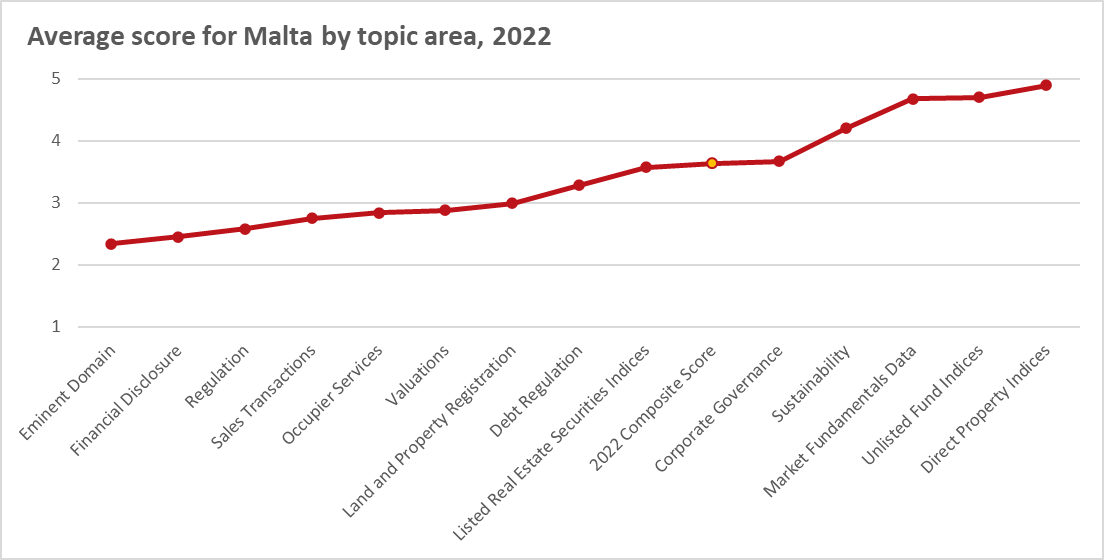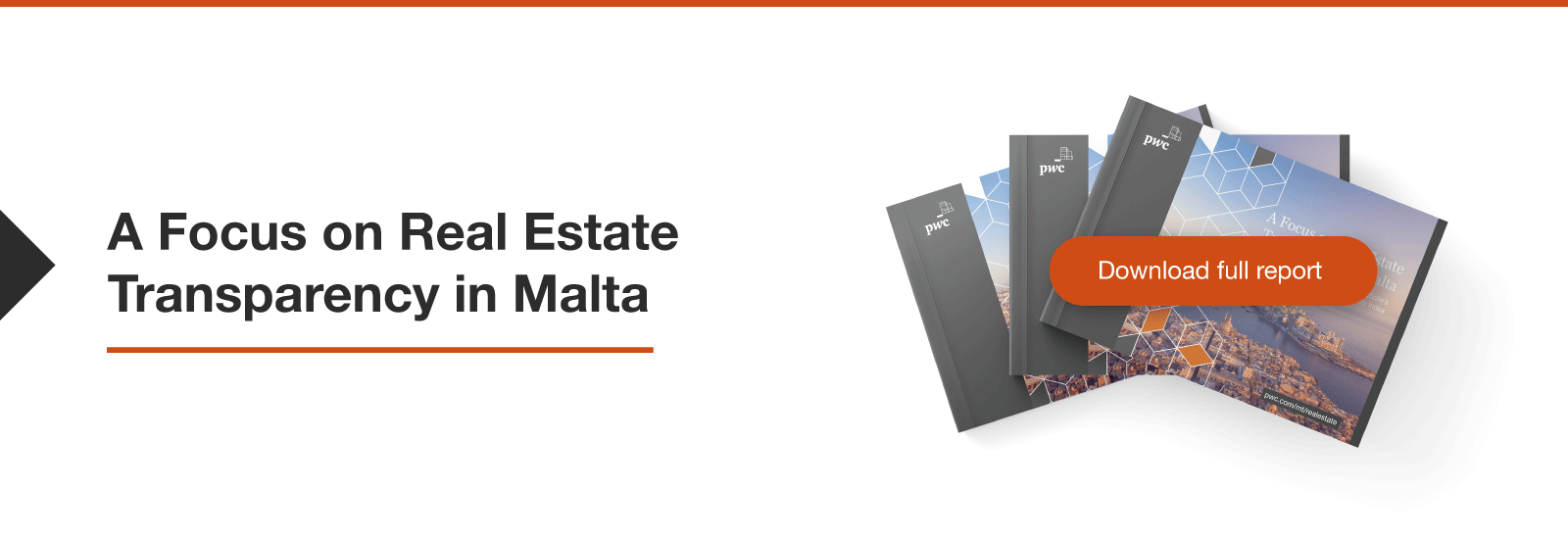
Transparency within the real estate market leads to increases in business efficiency, competitiveness, flexibility and investor confidence. It also facilitates the achievement of the country’s macroeconomic goals, through increased productivity, continued foreign direct investment, as well as improved policy development and long-term real estate planning.
This transparency has become even more important in today’s business world, in light of the heightened uncertainty and rapid change characterising the economic environment, owing as well to the repercussions of the COVID-19 pandemic and geopolitical conflicts. This has led to shifts in how we live and work and periods of greater consumer uncertainty, rising inflation and interest rates, as well as issues in supply chain distribution.
Understanding the importance of these benefits, PwC Malta has embarked on a project, in conjunction with JLL and Archi+, to derive a real estate transparency index for Malta for the first time. Through their Global Real Estate Transparency Index (GRETI), published on a biennial basis, JLL have been mapping the evolution of real estate transparency across 93 other countries and territories since 1999. The JLL GRETI is based on a combination of quantitative market data and survey results. The Index scores property markets on a one to five transparency scale (ranging between Highly Transparent to Opaque, respectively) and acts as an essential guide for companies operating in foreign markets and a unique benchmark of real estate market transparency.
Over the past few months, PwC Malta led the compilation of survey results for Malta given that JLL do not have a presence locally. This was done through consultations with key stakeholders within the public and private sector, including real estate investors, key developers, architects, lawyers, notaries, real estate agents, and property managers. The Index, based on JLL's methodology, focuses on 14 topic areas, including direct property indices, availability of property data in connection with transactions, valuations, the use of real estate technology in construction and property management (among others), real estate tax, land use planning, professional standards of agents, green building regulations and sustainability.
Global Real Estate Transparency Index Components, 2022

Source: JLL and LaSalle 2022, Global Real Estate Transparency Index, 2022
Malta placed 62nd among 94 participant countries
Malta has been attributed a score of 3.64 in the Index, thereby falling within the Low Transparency category, along with countries such as Morocco, Egypt and Sri Lanka. While scoring well on fronts such as governance of listed vehicles, regulatory and legal aspects, as well as the transaction process, areas such as sustainability, technology and digitisation, and availability of data merit considerable improvement.

Source: JLL and LaSalle 2022, Global Real Estate Transparency Index, 2022; PwC Analysis
Ensuring that contracted data is collated, recorded, analysed, digitised and disclosed to the public could help improve Malta’s score in terms of availability of data and technology and digitisation. Aggregate time series of data including contracted rents, contracted property prices, vacancy rates, gross capitalisation rates, office physical occupancy rates, as well as stock of properties by type and size, would prove beneficial for investors, Government and other stakeholders to readily assess the inherent value of their transactions. Publication of contracted data would also boost investor confidence. Furthermore, contracted information could be particularly beneficial for the preparation of market-based real estate valuations, thereby improving the credibility of such valuations.
The ongoing project which will result in the digitalisation of the lands register and the digitisation of records and processes within the Lands Authority is a step in the right direction in this regard. Having said this, from a technology standpoint, the proptech sector is still at its inception. Furthermore, technologies that could lead to improvements in the way properties and facilities are managed, or the manner in which real estate data is collated, cleaned and analysed, are currently not used or being used by very few industry participants, leading Malta to achieving a low score on this front.

Malta also lags behind on the Index in the field of sustainability. Sustainability is garnering increased attention and will continue to do so in the future. Investors may need to start justifying their real estate investments, particularly if these have an impact on their carbon footprint. Owing to increased regulation and stakeholder pressure, companies including those involved in real estate will need to start taking into consideration sustainability when reporting their performance in the near future, particularly in view of the Taxonomy Regulation and the proposed Corporate Sustainability Reporting Directive (CSRD).
Europe, and Malta, will not be able to meet their ambitious targets unless financial investments are directed towards sustainable projects and activities. Currently, Malta lacks a well-established energy benchmarking system. While there are minimum energy efficiency standards for new buildings, the same are not in place for existing properties. Moreover, there is no tracking of Greenhouse Gass (GHG) emissions for real estate on a national level. This mirrors the lack of GHG Emissions Standards for both existing and new construction locally. Additionally, green building certification systems such as BREEAM and LEED are used by a number of market participants voluntarily, given that there is no requirement for the use of green building certification systems. The results of the sustainability stream are also impacted by the lack of green lease frameworks. Moreover, Malta lacks the use of a dominant or prominent health and wellness building certification system. The onset of the COVID-19 pandemic has led to increased awareness of personal and environmental hygiene, health, work-life balance, as well as social relations within the real estate field.
Malta’s score could improve a notch in the next round of the JLL GRETI
The results of this first Real Estate Transparency Index for Malta prioritise the initiatives Malta should address moving forward to increase transparency, focusing on digitalisation and publication of market data for increased market confidence and incentivising more sustainable practices in real estate to encourage uptake.
Our first national JLL GRETI score allows the setting of targets which Malta should aim to achieve over the next few years. Taking into consideration the current and upcoming initiatives which are currently being rolled out by the Government, and initiating actions in other areas of concern as highlighted, Malta could achieve a score lower than 3.5, allowing the country to climb up a notch within the transparency ladder and classify within the Semi-Transparent category. This shift could potentially happen by the next round of the JLL GRETI in 2024.
The gradual improvement of our transparency within the real estate sector will enhance the level of trust and will continue to ensure sustainability of the industry moving forward.
















